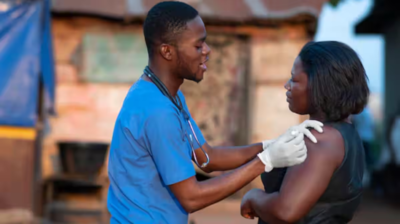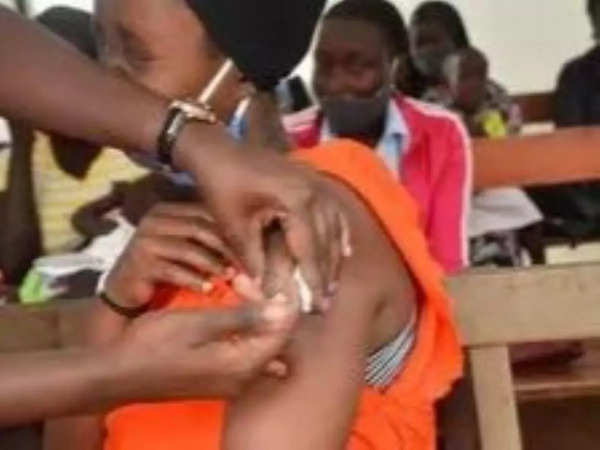Welcome To Latest IND >> Fastest World News
In Uganda’s
Bundibugyo district
, a strange disease known as Dinga Dinga, which means “shaking like dancing,” has surfaced. It has left locals and medical experts unclear of what to do next. Women and girls are mainly affected by the disorder, which causes severe bodily tremors and makes walking almost impossible for some. Here is what we currently know about this condition’s symptoms, prevention, and therapy.
What are the symptoms of Dinga Dinga?
The symptoms of Dinga Dinga are as unusual as they are distressing:
- Uncontrollable body shaking: The most striking feature of the illness is violent, involuntary movements that resemble dancing.
- Fever and extreme weakness: Patients often report high fever and overwhelming fatigue.
- Paralysis-like immobility: Some experience a sensation of paralysis, with even basic movements like walking becoming impossible.
To date, approximately 300 cases have been documented in Bundibugyo. No fatalities have been reported, and most patients recover within a week with appropriate treatment.
Representative image
How are health officials responding?
Medical professionals are actively investigating the disease. Samples from affected individuals have been sent to Uganda’s Ministry of Health for analysis. In the meantime, antibiotics are being used to treat patients, with promising results.
Dr Kiyita Christopher, a District Health Officer, while talking to the local media said, “Most patients recover within a week of receiving medical care. I urge locals to seek treatment from district health facilities instead of relying on unverified herbal remedies.”
Public health campaigns
in the area are raising awareness about the illness, educating people on recognising symptoms early and seeking proper care.
Representative image
What could be causing Dinga Dinga?
The exact cause of Dinga Dinga remains unknown. The speculation around the disease range from viral infections to other environmental elements, but no definite solutions have been discovered yet. It is to be noticed that the condition has been linked to the historical
Dancing Plague of 1518
in Strasbourg, France, when people danced relentlessly for days due to an unknown reason.
The mystery surrounding Dinga Dinga continues, and the impacted community is working together with health workers to contain the spread. Most patients recover quickly after receiving antibiotics, which has been a comfort for many.
Residents should be aware of early warning signals, such as fever and tremors, and seek quick medical assistance.
Latest IND


